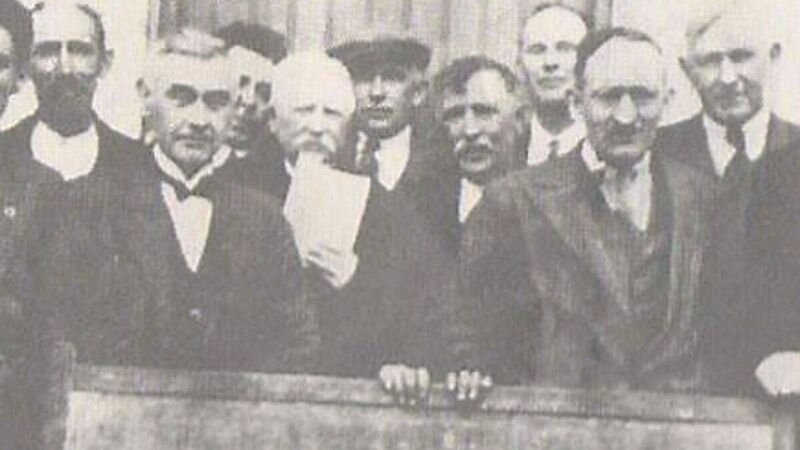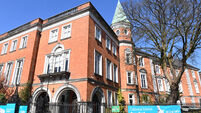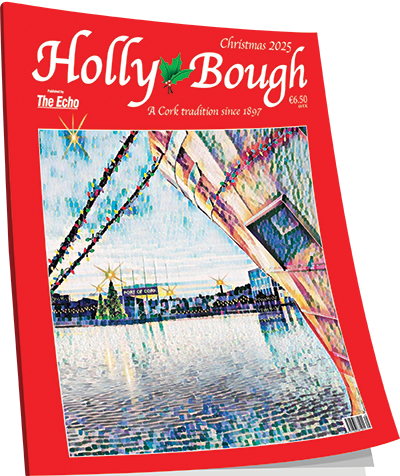Ireland's longest lived bardic school celebrates centenary in Cork Gaeltacht village

Dáimh Scoil Mhúscraí, Ireland's longest living bardic court, was established on the Whit weekend in 1925 and this centenary will be marked with a poetry tour in Baile Mhúirne on Saturday afternoon.
A tour to honour the poets of a Cork Gaeltacht village who set up a bardic school one hundred years ago will be held this weekend to mark the centenary of the establishment of Dáimh Scoil Mhúscraí Uí Fhloinn as the first event in a revived Féile na Cincíse/Whitsun Festival in the community.
The Dáimh Scoil was established by three friends who happened to be poets, Pádraig Ó Cruadhlaoich who was known by his pen name, Gael na nGael, Dómhnall Ó Ceocháin and Pádraig Mac Suibhne - 'An Suibhneach Meann'. Pádraig Ó Cruadhlaoich was a tailor in Macroom when he met with Pádraig Mac Suibhne, a teacher from Cúil Aodha who was teaching in the town. Dómhnall Ó Ceocháin was an Irish language teacher employed by the precursor of the Cork Education and Training Board.
They held the first gathering of the Dáimh Scoil in the national school in Baile Mhuirne, now Scoil Abán Naofa, on Whit Weekend in 1925. It was subsequently decided to hold between the two Christmasses - Christmas Day and Womens' Christmas - and that has been the tradition ever since.
The annual gathering encouraged poets and singers in the Cork Gaeltacht of Múscraí, a community which includes the villages of Baile Mhúirne/Baile Mhic Íre/Cúil Aodha/Cill na Martra/Réidh na nDoirí/Béal Átha'n Ghaorthaidh, to compose poetry and songs and some of these works are still very popular, the likes of 'An Poc Ar Buille', 'Táimse agus Máire' and 'Scoil Bharr D'ínse'. They would be sung at sing-songs and many Irish people would have learned them going to school.
Saturday's event is a tour of various sites in Baile Mhúirne and the neighbouring village of Baile Mhic Íre where the different poets who participated in the Dáimh Scoil over the years will be recalled by their relatives who will be reading the poetry written by their ancestors.
The tour commences in the courtyard of the Mills Inn in Baile Mhúirne and travels from there to the village of Baile Mhic Íre with stops at Ionad Cultúrtha an Dochtúir Ó Loingsigh, Scoil Abán Naofa and the Gadaí Dubh bookshop before concluding at Reilig Ghobnatan/St Gobnait's Cemetery, where many of those early poetry pioneers are now at rest.
"This event is the first in a weekend festival in the village to mark the revival of the old pattern day, the Whitsun/An Cincís, in Baile Mhic Íre," said Concubhar Ó Liatháin, the secretary/cléireach of the Dáimh Scoil.
"The Whitsun was held every Whit Sunday and saw pilgrims flock to Baile Mhúirne to pray at St Gobnait's Shrine, there used to be a big fair in the village of Baile Mhic Íre with swing boats and the stalls selling all sorts of merchandise and there'd be music and craic round."
There will be an opportunity to see old footage of the Whitsun long ago at an event in the Ionad Cultúrtha on Saturday evening where archive material will be presented by Conor Kelleher of the Gadaí Dubh bookshop.
That event and a food fair on Sunday at Scoil Abán Naofa, which will host the return of the swing boats, are being organised by Eibhlín Ní Lionáird, the Language Planning officer for Múscraí employed by Comharchumann Forbartha Mhúscraí.
On Sunday afternoon, at St Gobnait's Shrine, the Bishop of Cloyne, Dr William Crean, will celebrate Mass in honour of St Gobnait. In previous years the Mass at the shrine later in the Summer but it's been brought forward to coincide with the revival of the Whitsun Festival/Féile na Cincíse in the village.







 App?
App?





